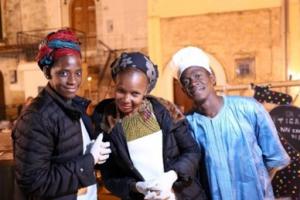In a rural area that is rather disadvantaged and in risk of abandonment, EAFRD and ESF support were combined in a project for the integration of migrants through work training.

The project area is very close to two centres for asylum seekers that receive refugees from Africa and the Middle East. Migrants hosted there were usually demotivated and need economic and psychological support. A social enterprise together with a LAG developed the project blending the use of the ESF and the EAFRD for testing new tools for promoting social innovation. It was build on the opportunity of integrating immigrants in a rural area that is rather disadvantaged and in risk of abandonment.
The initial part of the project, funded by EARDF, supported training in four meetings. Participants were 46 young unemployed people (27 local and 19 migrants) living in the LAG area. The meetings were centered on various issues like enterprise setting up, social farming, and European funding. In the second part of the project, 10 out of the 46 participants were selected to spend 100 hours working either at the premises of the local botanic park on sustainable horticulture or at the LAG offices,where they got involved in analytical and research work on the conditions and problems of migrants present in the area.
The project showed that a common path and shared works can promote the social inclusion of disadvantaged people.
Participants produced a sustainable garden, the wooden African barn. They also gathered and analysed data on land and migrants in the area.
After the project ended, a new cultural association (Rise Hub) was set-up involving both local unemployed and migrants (the majority of them coming from the previous training).
This association, jointly with the LAG, has successfully promoted a wide variety of small and medium scale projects building upon its members knowledge, linking to other ongoing projects concerning migrants, and/or testing original paths.